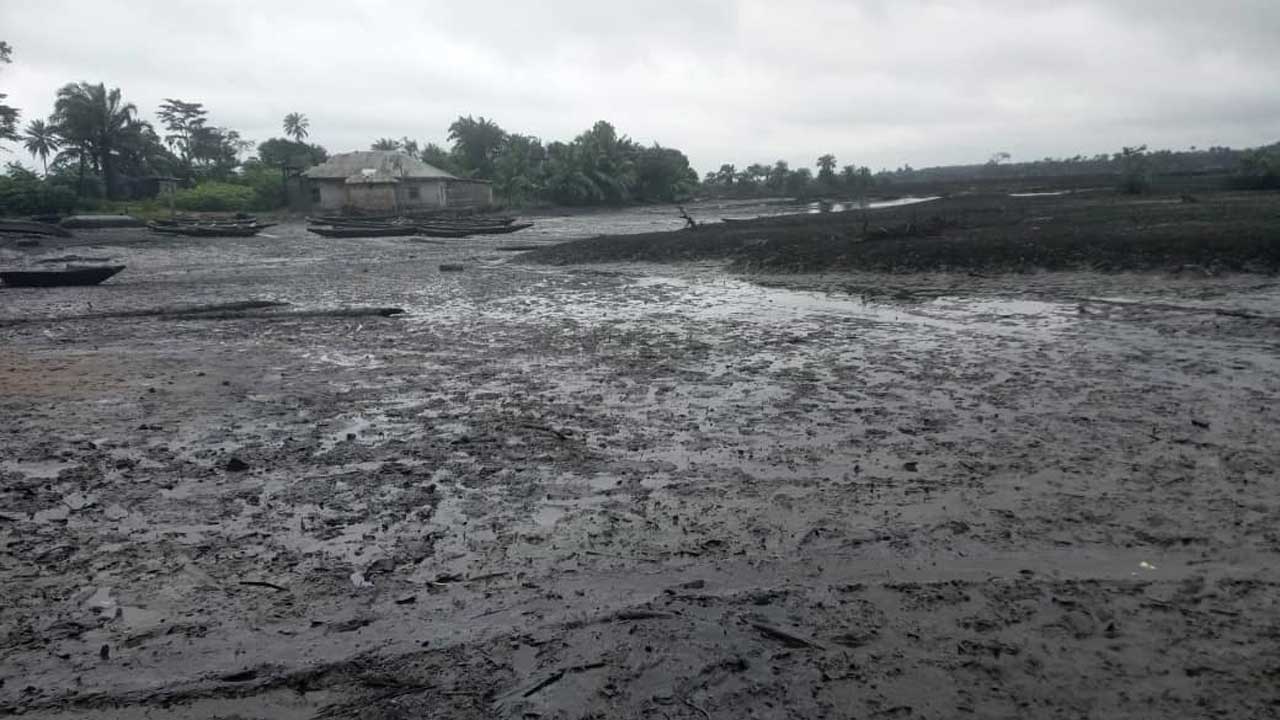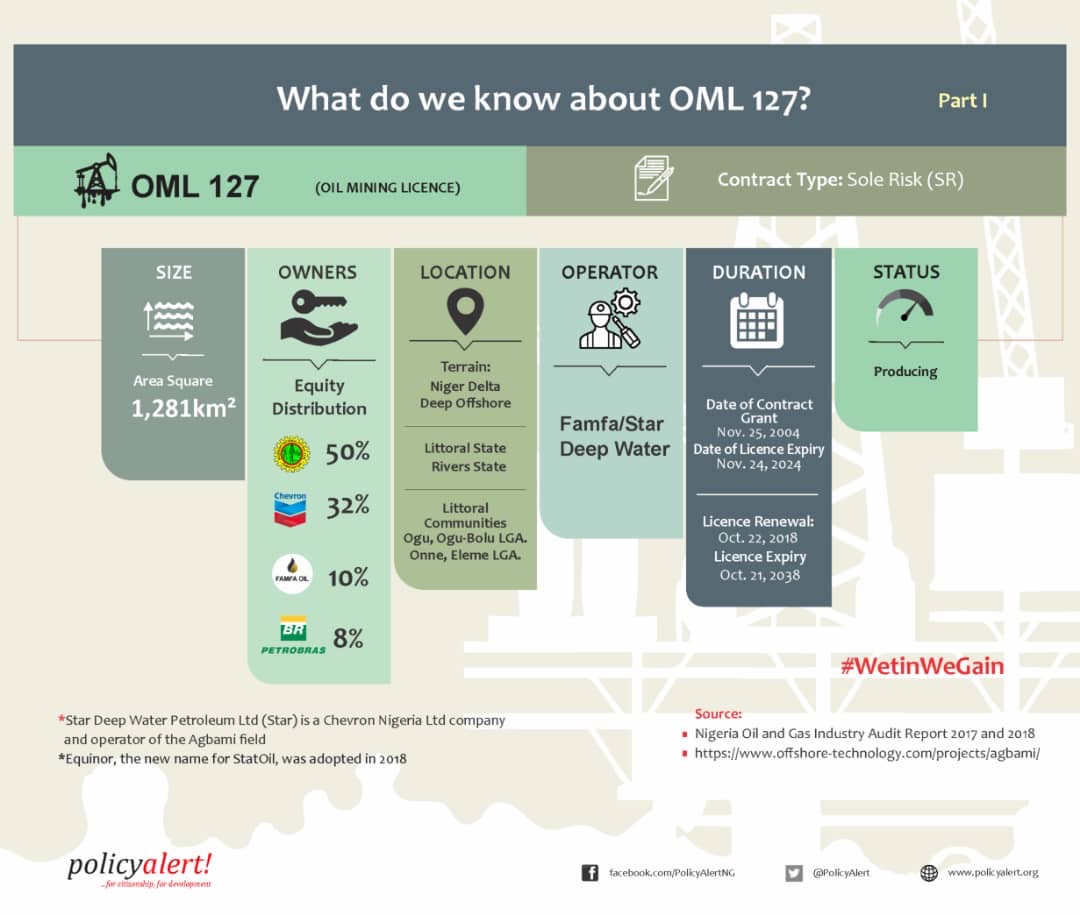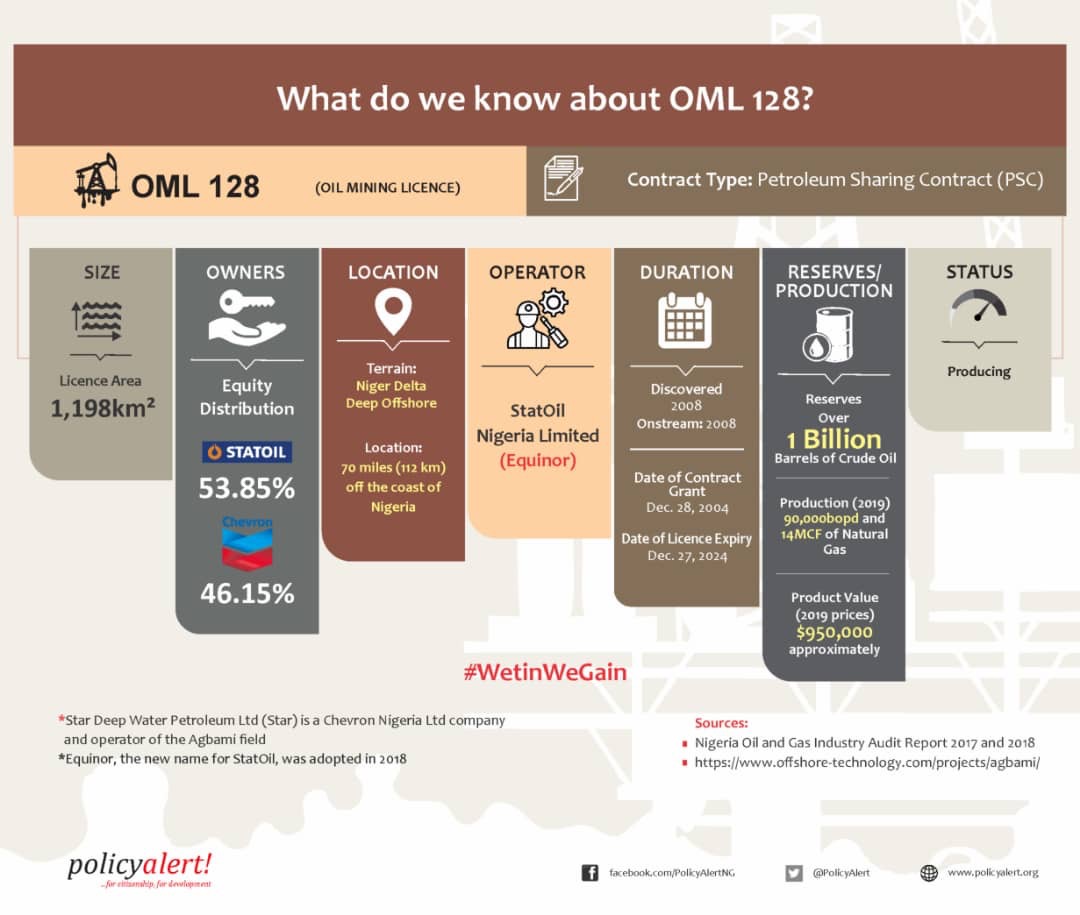 When a list of oil-rich communities in the Niger Delta suffering inadequate social amenities is drawn, Onne community in Eleme Local Council and Ogu community in Ogu-bolo Local Council, both in Rivers State, would probably lead the pack.
When a list of oil-rich communities in the Niger Delta suffering inadequate social amenities is drawn, Onne community in Eleme Local Council and Ogu community in Ogu-bolo Local Council, both in Rivers State, would probably lead the pack.
Despite playing host to many oil and gas companies, including Chevron Nigeria Ltd, Intels Oil Services and Logistics Company, Addax Petroleum, Orlean Investment Africa Limited, Total Premier Services Nigeria Limited and Prodeco International Limited, residents of the two communities live in deplorable conditions.
Onne community, which is made up of four clans – Agbeta, Alejor, Ekata and Ogoloma – is about 34 kilometres from Port Harcourt, the state capital. On a good road, it could be accessed within 30 minutes but that is not the case. On January 13, 2022, when The Guardian visited the community from Port Harcourt, driving through the popular Eleme-Onne section of the East West road, which was barricaded several times last year following its dilapidated state, was a herculean task.
It could be recalled that on July 26, 2021, youths of Ogoni ethnic nationality shut down the road for seven days to protest against its terrible state. The protesters only vacated the road after the Minister of Niger Delta Affairs, Godswill Akpabio, appealed to them to do so and consequently pave the way for commencement of reconstruction works. However, six months after, that section of the road still looked the same except for some grading works and filling of gully-like potholes. Regrettably, that same road leads to Onne Oil and Gas Free Zone.
When The Guardian finally got to Onne after about an hour and 30 minutes, the first person it saw was a pregnant woman at the deplorable entrance of the Model Primary Healthcare Centre. The woman who was visiting the centre slipped and fell but a passerby swiftly assisted her to get up.
Enquiries showed that the facility was the only health institution in the community. It was observed that the health centre lacked modern equipment, no electricity no water supply. A senior staff of the facility who craved anonymity, however, said the centre had an electricity generating set which is used only when necessary. Although the pharmaceutical unit was virtually empty at the time of the visit, the staff said the management had applied for drugs from the State Hospital Board, which had not been supplied.
A senior medical practitioner at the facility, who also spoke on the condition of anonymity, stated that the community had high maternal and child mortalities, revealing also that some families in the area take their loved ones to Port Harcourt to receive proper medical attention.
Thus, the state of the hospital puts the contributions of the oil and gas companies operating in the area to question. Also begging for answer is the question of whether or not they have been paying the derivation fund as stipulated by the 1999 Constitution and how it is being spent.
The derivation fund is paid to oil producing states monthly to assist the host communities in tackling environmental pollution and degradation, empowering the residents economically and providing basic amenities like hospital, potable water and paved roads.
Section 162, sub-section 2 of the Constitution stipulates that the fund is for the exclusive use of oil and gas producing communities as compensation for loss of fishing rights and productive farmlands as a result of oil and gas exploration and production activities.
According to the Nigerian Extractive Industries Transparency Initiative (NEITI), the fund is “a financial incentive enshrined in the constitution for oil-producing communities, based on their production input, to serve as benefits and encourage the community to create an enabling environment for more production of crude oil and gas.”
A probe into the financial inflow of one of the major oil exploiters in the area, Chevron Nigeria Ltd, revealed that the firm, through its subsidiary, Star Deep Water Petroleum Limited that operates the Agbami 127/128 offshore field, had an average daily production of 90,000bpd and 14MCF of natural gas in 2019.
 The Nigeria Oil and Gas Industry Audit Report 2017, 2018 and 2019 showed that Chevron paid $600.101,850 to the government in 2017, $842,860.000 (2018) and $945,540,000 (2019). The report also showed that the firm implemented 13 projects across the Niger Delta in 2017 at the cost of $13,529,206.46.
The Nigeria Oil and Gas Industry Audit Report 2017, 2018 and 2019 showed that Chevron paid $600.101,850 to the government in 2017, $842,860.000 (2018) and $945,540,000 (2019). The report also showed that the firm implemented 13 projects across the Niger Delta in 2017 at the cost of $13,529,206.46.
Also, the NEITI, in its 2019 Oil and Gas Audit Report, stated that disaggregated payment in 2019 for OML 127/128 Agbami Offshore Field revenues streamed to the Niger Delta Development Commission (NDDC) was $15.36 million. In the report, NEITI indicated that across the Niger Delta region, Star Deep Water Petroleum Limited executed 13 projects at the cost of N1,723, 589 in 2015; 20 projects at the cost of N1,112,532,000 in 2016 and 35 projects at $13,529,206.46 in 2017.
The Guardian findings, however, revealed that the only project executed by Chevron in Onne was a community hall constructed about three years ago even as other oil companies operating in the area were yet to execute any noticeable community project.
Aside from lack of basic amenities, the communities also suffer from environmental degradation as a result of oil exploitation activities.
A visit to Alejor and Ekata, two out of the four clans in Onne community, showed that most of the farmlands were polluted. It was gathered that farmers in the area don’t grow vegetables, yam, cocoyam and other important food crops anymore. Also, roofing sheets sighted in the areas have rusted due to acidic rains. This was even as fishermen in the area were living in penury, as Achololo, Onwunwbo, Kwele and Nkledor Rivers within Ogoloma clan were all polluted, forcing the fishes to go extinct.
Daniel Celestine, a 21-year-old fisherman, who was seen fishing at Achololo River, said: “We fish one week on, one week off. When we enter the river to fish, oil is all over the water and we cannot do anything to stop that. Most of the fishes we catch these days are very small and contain oil on their heads and sometimes inside them.”
Mrs. Felicia Utimeh, who deals in periwinkle and whose husband is a fisherman, corroborated Celestine’s statement. “The heads of the fishes are oily. They also smell. Before, the periwinkle were staying like one month before perishing but now it is very small and gets rotten in a few days,” she said.
On the effect of eating such fish on human health, a senior lecturer at the Department of Agricultural Economics and Extension in the University of Port Harcourt, Dr. Zelda Omasanuwa, told The Guardian that there was danger of bioaccumulation on human body when fish from polluted water is consumed.
“Human health is endangered by such because even with bio remediation, not all the chemical will be completely removed from the pollutant. It is common fact that there should be provisions of health facilities to enable the people go for check up to know the level of metals and elements in their body system if they have been exposed through the consumption of the polluted sea foods. Since it is obvious the environment is polluted, it is advisable for people to do regular check-up,” Omasanuwa said.
In Ogu community, a traditional ruler, Chief Spiff Taribo Agbara, claimed that the state government provided the few amenities in the community.
He said: “Ogu has enormous stake in Chevron but the only two hospitals we have, the General Hospital and Health Centre, were built by the Rivers State government. There is none built by Chevron or any other company operating here.”
He reiterated that the major occupation of the people is fishing but lamented that the ecology of the area had been completely destroyed.
“From 5:00am, people come from all over the community to fetch water in my house. Ogu youths are not lazy; if you provide opportunity for them, they will survive,” he stated.
Commenting on the state of affairs in Onne and Ogu communities, some organisations in the Niger Delta region like the Coalition of Rivers Oil and Gas Communities (CROGHCOM), Ijaw National Congress (INC) and the Ijaw Youths Congress (IYC) lamented the fate that has befallen them, saying it was akin to what other host communities suffer in the Niger Delta.
The Chairman of CROGHCOM), Barituka Loanyie, condemned the extreme lack of social amenities in the two communities despite the huge oil exploration and exploitation activities going on there. Loanyie said the organisation would support the communities in whatever ways legally possible to seek redress.
Also, the President of INC, Prof. Benjamin Okaba, lamented: “The region has water but none to drink due to utter neglect by government and oil companies in the region.”
On his part, the President of IYC, Peter Igbifa, said: “The region is suffering from lack of water. The IOCs should not joke with water projects. As our rivers get destroyed, so the land that produces the water is polluted. It is important that this critical area of infrastructure should not be joked with. IOCs should know that there is no room for excuses. The people of the region should not be tested for their patience. Water and other social amenities are critical to us.”
The Director of Geoscience and Environmental Management (IGEM) at the Rivers State University, Prof. Akuro Gobo, said oil companies in the region had not been fair to the host communities, lamenting that potable water could not be sourced from most boreholes drilled by the companies.
Gobo, who is an environmentalist and a professor of Applied Metrology, added: “They should provide basic amenities to host communities. Part of the problem is the federal system where they will say that they are drilling oil for the nation. I think the national and state assemblies should make laws making it compulsory for companies to provide basic amenities for host communities.”
 Incidentally, towards remedying the deplorable state of many host communities, the Petroleum Industry Act (PIA) 2021 provides for three per cent equity allocation to host communities tagged Host Communities Development Fund (HCDF). Although many stakeholders have described the allocation as paltry and unsatisfactory, the Director, Emerald Energy Institute, University of Port Harcourt, Prof. Chijioke Nwaozuzu, described the management of the fund as most critical, advising that it should be administered equitably and judiciously, considering that it is meant for provision of basic amenities.
Incidentally, towards remedying the deplorable state of many host communities, the Petroleum Industry Act (PIA) 2021 provides for three per cent equity allocation to host communities tagged Host Communities Development Fund (HCDF). Although many stakeholders have described the allocation as paltry and unsatisfactory, the Director, Emerald Energy Institute, University of Port Harcourt, Prof. Chijioke Nwaozuzu, described the management of the fund as most critical, advising that it should be administered equitably and judiciously, considering that it is meant for provision of basic amenities.
To alleviate the sufferings of the communities, he said the implementation of the HCDF should be translated to real amenities that touch lives at the grassroots.
Nwaozuzu advocated the use of project managers in executing community projects under the fund. “They know how to identify where the needs are, how to do their project costing and how to schedule projects and deliver them on time. If the people are involved and the youth become part of the labour force for the project, it will go a long way to engage the youth and tackle a lot of social vices.”
Taking heed of Nwaozuzu’s suggestion may enhance project delivery in the communities as enquiries into how funds meant for community projects in Onne and Ogu are spent revealed lack of proper monitoring.
The traditional ruler of Agbeta community, Chief Stanley Mba Chutee, said the funds were given to a few persons through the Community Liaison Officers (CLOs). He alleged that the CLOs ‘settle’ some communities and pocket the rest of the funds.
“We have oil wells but there is no single basic social amenity in this community. No hospital, no employment, no light, no water. Our challenge is the people mediating between the companies and us. I am a village chief. We selected those who went to the university to lead us but they are deceiving us,” he alleged.
The Chairman, Community Development, Peace and Security in Ogu Community, Mr. Karigboro Orumama, who admitted that “we interface between the people, government and the companies”, accused the oil companies, particularly Chevron, of neglecting the community.
Orumama urged the company to come up with policies that would lead to development of the area this year.
When contacted for clarifications, Chevron’s General Manager, Policy, Government and Public Affairs, Mr. Esimaje Brikinn, however, said the firm had been contributing to the wellbeing of both communities through its community development projects.
“We are in Onne Free Zone and have been working to contribute to the well-being of the community through our development projects. We are minimally in Onne; we do not have production facilities in Onne. We are only tenants at the free zone. The needs of communities across the Niger Delta are many and what we can do is to work with the resources we have. We are law-abiding; we are meeting all our obligations,” the Chevron official said.
Brikinn had recently noted that the HCDT in the Petroleum Industry Act (PIA) would be a catalyst for development of the host communities.
Section 239 of the Act provides that a Trust should manage and supervise the administration of the annual contribution of the settler as contemplated under the Act and any other sources of funding.
Brikinn did not respond to further questions on whether Chevron was making adequate contribution to the development of the communities based on the high returns on its investments in the areas. He directed.
The Guardian to speak with the company’s Coordinator, External Communications, Mr. Stephen Lai Adeniji, who, when contacted, politely requested that the questions be sent via email. An email was sent to him on January 21, 2022, and was later resent on January 26, 2022, as a reminder but he was yet to respond at the time of filing this report.
This investigation is supported by Policy Alert with funding from Open Society Initiative for West Africa (OSIWA)*






